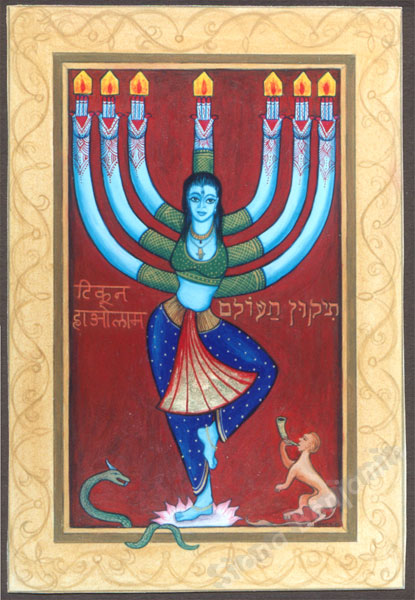We would be remiss to have this discussion without eventually looking at the compatibility of Western, Eastern and Far Eastern views on Monasticism. And you address some of that in your initial post. It is important to see where each comes from and how they are expressed.
I'm glad you caught that, as that was one of the intentions of the OP....especially seeing that others in Eastern Religion may have one specific view of monasticism and how its practiced in Christianity...sometimes, to the point of making it seem that all aspects of it are in no way similar to how they view it when in many places of Christianity, its very similar.
Catholics and Eastern Orthodox have different concepts on Monasticism and that will play a role. We also need to look at the Oriental Orthodox.
Was thinking that I probably should have mentioned the issue of how those in Oriental Orthodox differ in their approach....as even within Orthodoxy, there are significant differences between Eastern Orthodoxy and Oriental Orthodoxy (i.e,
Coptic Orthodox,
Ethiopian Orthodox,
Eritrean Orthodox,
Syriac Orthodox,
Malankara Orthodox Syrian Church/ Indian Orthodox Church,
Armenian Apostolic ). Personally, I tend to look more favorably upon those in Oriental Orthodoxy when it comes to their expressions of Monasticism.....for they tend to seem better suited tfor reaching those in Eastern thought. But that's just me....
And how much are we considering India in the discussion. That adds some more thoughts.
Agreed. To be clear, India was more than in view when it came to considering them in the discussion on the East....as that was something I'd hoped would be evident when it came to discussion in the OP about Eastern religious views such as Hinduism (which originated in India). With Catholicism, one can consider groups such as the St. Thomas Christian groups called the
Syro-Malabar Catholic Church and
Syro-Malankara Catholic Church---both of which are Eastern Catholic churches.......and for other references Christians and the
Nasrani....and concerning Catholic Christianity interacting with India, of course
one can always go to Youtube to find out more on the issue if interested. For some videos one can investigate:
.
One thing I'm reminded of, as it concerns inculturation, is something that was said best by another in an article entitled
Contextualization: Can a Muslim or a Hindu be a Christian ...:
For non-Westerners, the physical and spiritual worlds are not separate; everything in life has a spiritual aspect to it. Westerners separate the two, and can therefore make a distinction between culture and religion, but for most non-Westerners, the two are inseparable.
If we understand this, is the only option for a person in India to cease being a Hindu or a Muslim (Sikh, Buddhist, Jain, etc.) and become a Christian? Or can a person be a Hindu or a Muslim who follows Christ and serves the one true God alone? Before jumping to any conclusions, lets consider the matter.
Our host in Chandigarh, who oversees several house fellowships, is contextualizing his work in the local Hindu and Sikh cultures. In other words, elements of Hinduism or Sikhism find expression in the lives of these churches. In saying this, I do NOT mean the people worship false godsthe elements of culture present among them are part of their commitment to Christ, rather than compromising it. This leader is sometimes criticized by ministers from more traditional churches, who would like to see him completely break away from anything having an appearance of Hinduism or Sikhism.
An example of this contextualization is the name by which the believers call their fellowship. They call their community a satsang, which is a Hindu word for a gathering seeking truth. Some say it is wrong to use this Hindu term, arguing that it is a pagan concept. The brothers and sisters we met, though, believe the use of the word helps those of a Hindu background draw near to God. Another example is the use of a coconut for the Lords Supper. Coconuts are often incorporated into Hindu worship; therefore, Hindu-background believers break them open and take the flesh and the milk to represent the body and blood of Christ. Something really neat we learned is that, for Hindus, a coconut means fullness of life. So Christs body was broken, and through him comes fullness of life
It can be easy to criticize such contextualization of the gospel in other cultures, and those practicing contextualization have faced their share of attacks. Im not sure its right to criticize, though, until we have had the opportunity to live for an extended period of time in the culture in question, gaining a good understand of the practices and worldview of the people. How else can we understand whether a cultural expression is pagan or not? In our short time with our brothers and sisters in Chandigarh, as far as we could tell we found them to be full of the love of God and committed to Christ and the work of the kingdom.
Outside of that, As I mentioned earlier, I've written more elsewhere when it came to Jewish believers/Christians in Eastern countries such as India---as seen here in #
1. And some references one can investigate on their own:





